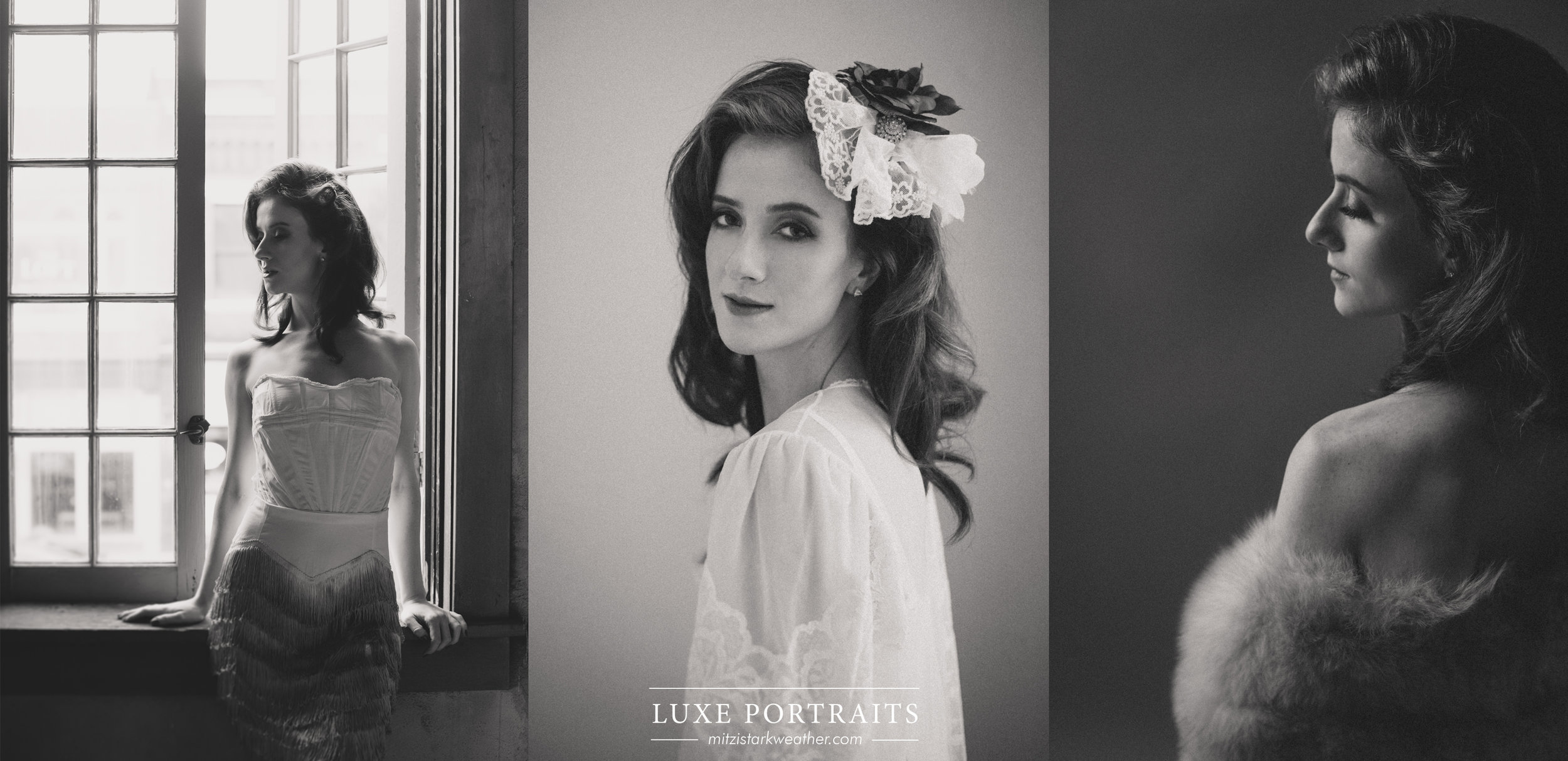Talking About What You Love
I started to cry.
We were almost finished recording the new Luxe Portraits promotional video, and we'd planned every detail of the script. But in that moment, as we sat inside the changing room at the studio to minimize echoes and record my voiceover, she told me to try speaking my lines from memory while I looked her in the eyes. (The "her" was my sister Natalie. If you've followed my work for any amount of time, you've seen her portraits. She's been my muse since before I knew that word existed.) And when I looked at her and spoke my first line - this was when I started to cry. So she hit record on my phone and said gently, "How's it feel? Talking about what you love?" I took a sip of water and said, "It's scary!" then immediately laughed and said, "No, I love it."
I've watched that video a dozen times. My reaction is so transparent, and I cringe each time I see my emotional mask go back on. Because I felt safe with her, I said my honest answer first: "It's scary!" But then I was so quick to nervously laugh and detract that, saying what I felt I should say: "No, I love it." Both things were true, but it wasn't until that moment that I verbally acknowledged the fear.
For me, talking about what I love (in this case, it's photographing women and helping them see their beauty and value) has always been scary. I mean, look at our culture: The dominant message is that we, women especially, are not good enough. 99% of the time, if you tell a woman she is beautiful and valuable just the way she is, she will disagree.
As a teenager, I hesitated talking about why I loved writing screenplays and listening to new age music. As a college student, I didn't want to talk about how much I preferred spending time alone reading and writing while my friends went to bars and sports games. As the wife of a midwest Christian pastor, I was afraid to talk about how much I love things like the Oscars, egalitarian marriage, and wine.
It's one of the best and worst parts of being a human: The fact that we want so badly to fit in because we desire community, that we allow our insecurity to twist that into acting a certain way just to belong... even if that belonging is false because it's a false version of us.
I used to blame those institutions for their incorrect expectations, but now I see the large part my own insecurities played. Sure, society and family and friends and peers could place unfair and even cruel expectations on me. But at the end of the day, I only went to bed feeling afraid and wrong and weird and alone because I couldn't accept who I was.
So what's worse: False belonging, or not belonging at all? I used to think it was better to lay low and not ruffle any feathers, but over the years I've seen the damage that comes from trying to wedge a star-shaped block into a circular hole. At first it just sits on top, but over time the edges wear down and by the time it fits, it isn't a star anymore. (And you know, it isn't a sphere either.)
And now, at the age of 28 with a career and a husband and a house and a beautiful studio in which I can create art everyday, do I feel like I belong? Not even close. But I'm realizing more with each person I am blessed to meet that we are all insecure and feel/have felt that we don't belong. So maybe instead of judging each other out of our own insecurities we could let this common thread, this fear of talking proudly about what we believe in because it may be rejected, unite us. It's scary to be different, but in the end it's the only way anything ever changes. There's room for each of us.
After all, stars aren't meant to fit into holes. They're meant to glimmer in the sky.
-Mitzi
Special thanks to Bekka Ross for her vintage hair and styling expertise, and Mckaela Armstrong for doing makeup for this beautiful shoot.


